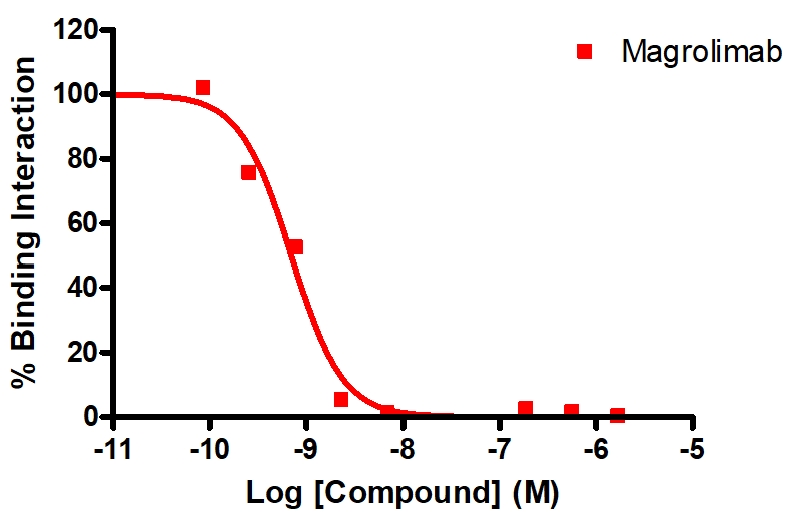Signal-regulatory protein alpha (SIRP-alpha), also known as CD172a, is a cell surface protein expressed on all myeloid cells, including monocytes, macrophages, and neutrophils. These cells are typically the first in line immune cells to react against infectious pathogens and tumor cells. SIRPa binds to its ligand, CD47, which is ubiquitously expressed on the surface of all cells and has been found to be overexpressed in some cancers. The binding of SIRPa to CD47 initiates a cascade of SIRPa-phosphatase enzyme coupling, which inhibits phagocytosis by phagocytes such as macrophages. Tumor cells strategically misuse CD47 overexpression to evade myeloid cell-mediated elimination. Targeting the SIPRa/CD47 interaction has become a promising therapeutic strategy to treat many cancers by promoting tumor elimination through innate immunity.
To provide a screening assay for identifying small and large molecule SIPRa and CD47 binding interaction blockage inhibitors, with the goal of eventually studying immune responses to aid in the discovery of novel immunotherapies to combat cancer.
CD47-SIRPA
Human CD47, human SIRPA
CD47: Leukocyte surface antigen CD47, Antigenic surface determinant protein OA3, Integrin-associated protein (IAP), MER6
SIRPA: SIRP alpha, Tyrosine-protein phosphatase non-receptor type substrate 1, CD172a, BIT, MFR, MYD1, PTPNS1, SHPS1, SIRP
Binding interaction between CD47-SIRP alpha
HTRF
| Compounds | IC50 (nM) |
|---|---|
| Magrolimab | 0.7 |
Malvern, PA, USA
More information can be found on our website Immune Checkpoint Assays
Reference compound inhibition of CD47-SIRP alpha binding interaction
